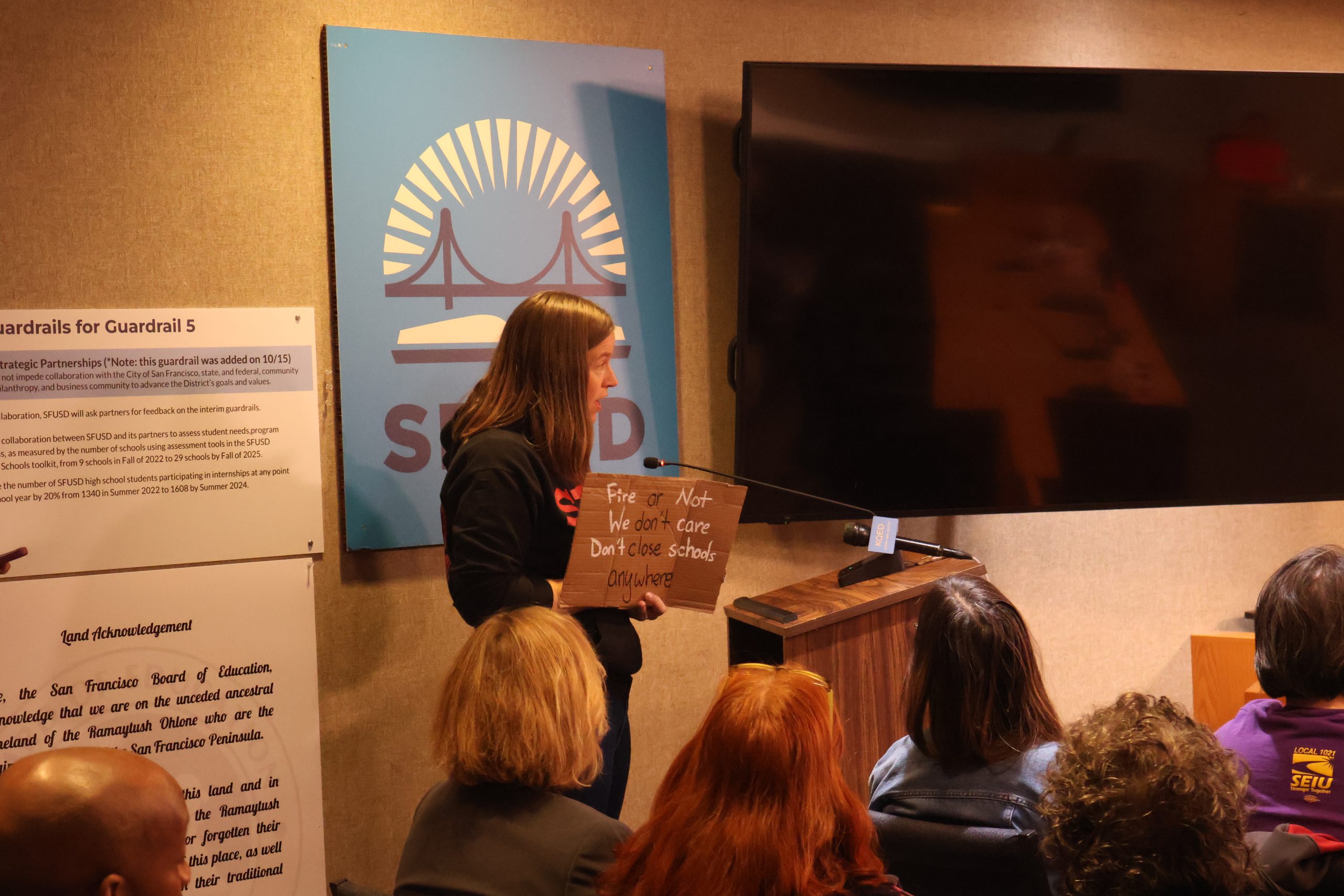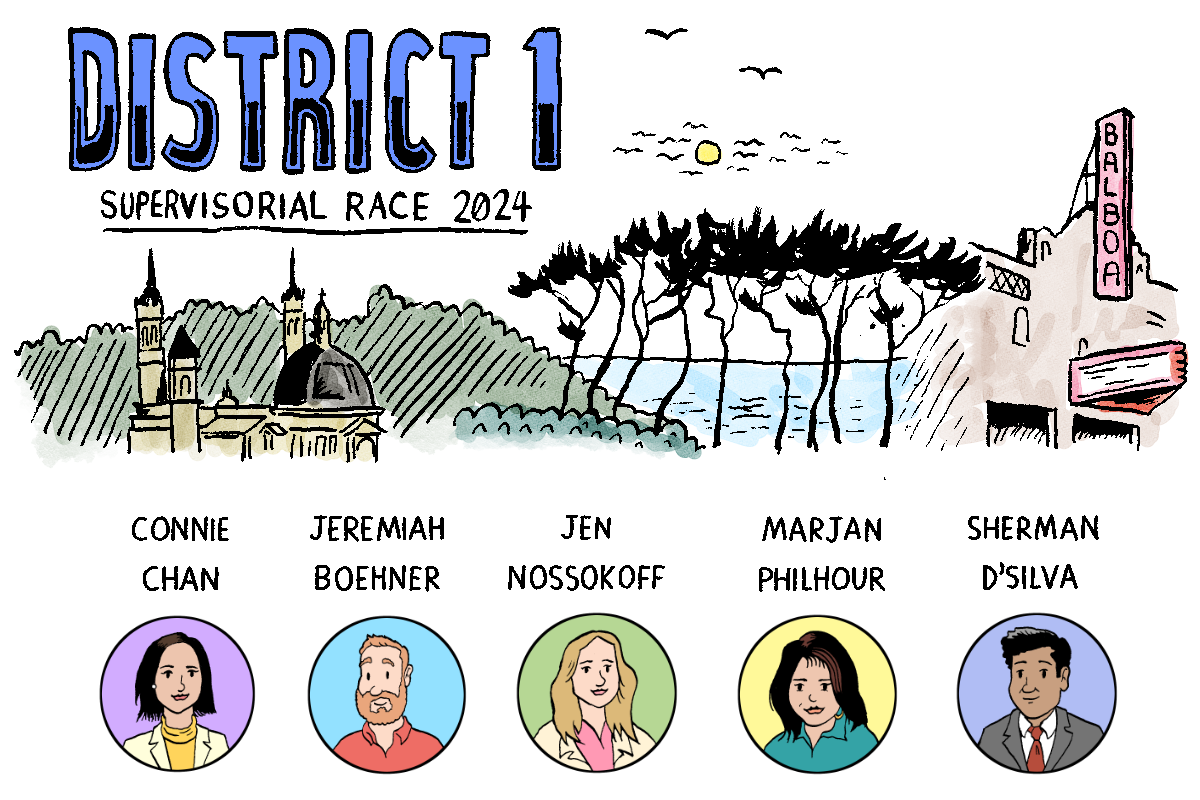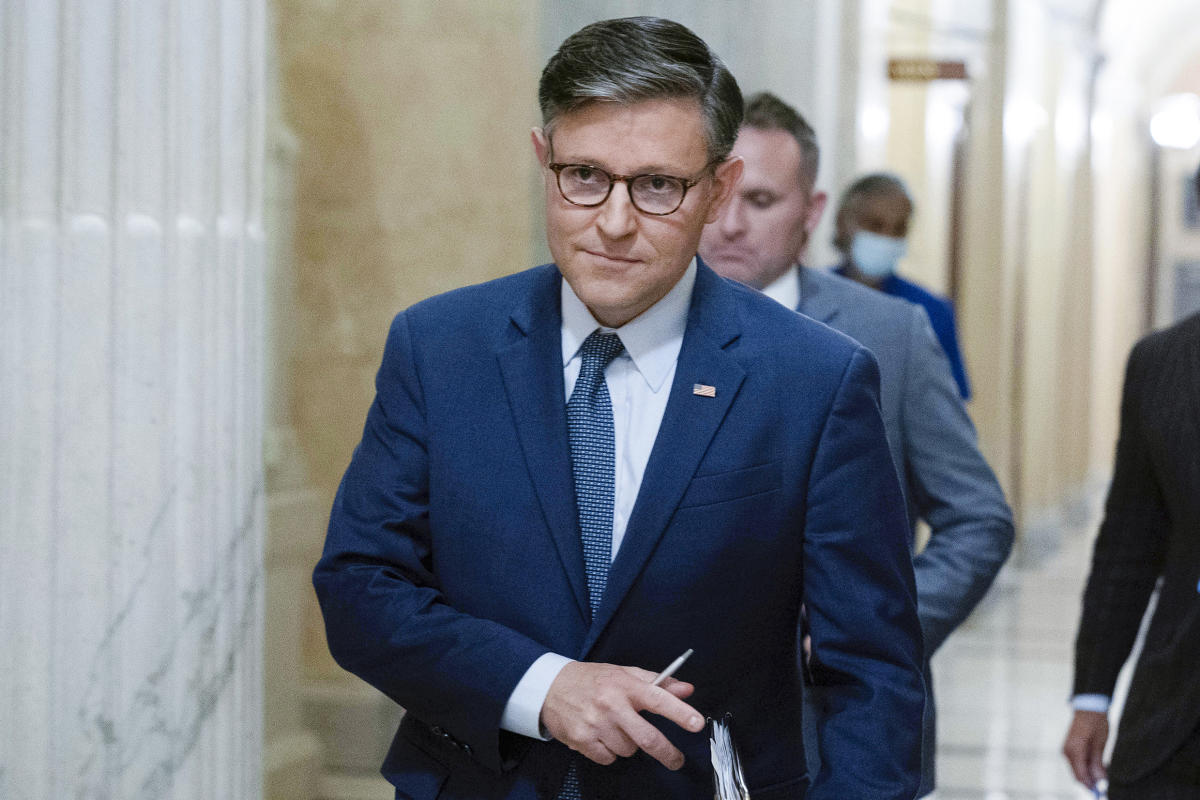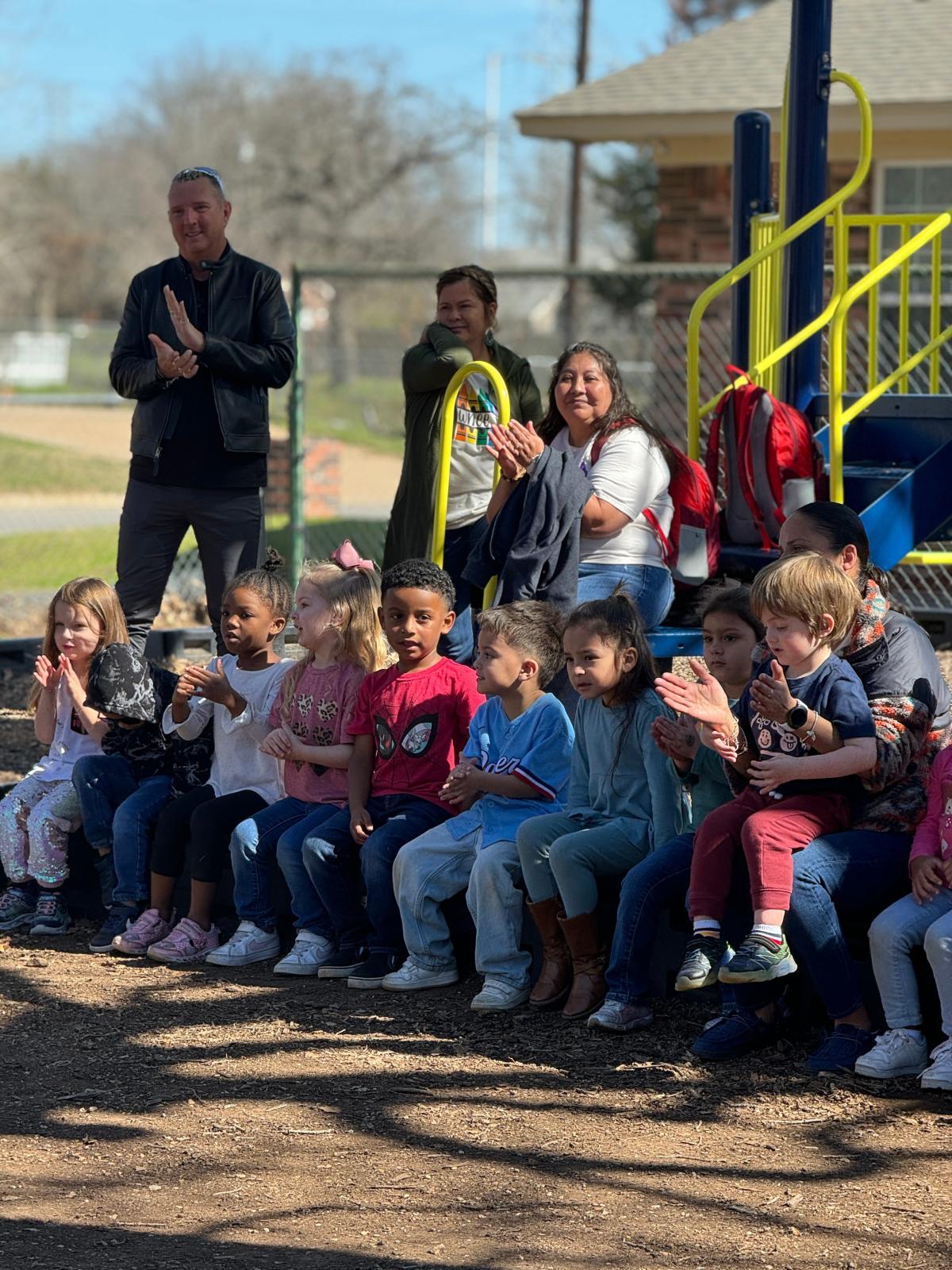[ad_1]
Update: Following the San Francisco Board of Education meeting, SFUSD published a statement on Sept. 22 at 3:25 p.m. indicating that Matt Wayne will remain the district’s superintendent and that the board is committed to working with him. Read the full statement here.
On Sunday at 9 a.m. the San Francisco Board of Education convened for an emergency meeting to discuss retaining or firing the district’s superintendent, Matt Wayne.
The emergency meeting comes just days after the San Francisco Unified School District delayed its announcement of which schools are set to close or merge, leaving parents and students in the dark. Acting school board president Matt Alexander has acknowledged that the board put the brakes on the district’s plan due to questions over its methodological and strategic soundness. His predecessor in the position, Lainie Motamedi, recently resigned citing the district’s poor leadership and dysfunction.
Wayne, who has served as superintendent for over two years, has been heavily criticized for his handling of the pending closures.
The meeting, which was held at the school district’s headquarters at 555 Franklin Street, was closed to the public but some 60 parents, school employees and students attended an hour-long public comment beforehand. Many took to the podium to express their concern over the district’s problems that are pulling it apart at the seams.
“Our school district is in a challenging and difficult moment right now,” said Alexander during his opening statement. The board president explained that the last-minute meeting was organized in light of a number of issues, including the delayed announcement of closures and the district’s mishandling of a hiring freeze that led to job offers being rescinded after the recipients had left their prior jobs.
While members of the community agreed on the problems — namely the closures, but also other woes including a massive budget deficit, bloated administration, staffing issues and the district’s costly and dysfunctional payroll software — not everyone agreed on the solutions.
Some made clear that Wayne must go, others expressed concern that firing the head of the district would cause too much disruption during an already disruptive time.

“Removing Dr. Wayne would further destabilize our whole ecosystem of care, and would increase anxiety and uncertainty at a time when we need it the most,” said Helen Parker Leigh, the principal at Sherman Elementary.
“If the purpose of this meeting is to fire the superintendent, it will only cause more chaos. What we need in this moment is stability,” said another attendant.
“If you have a leader that is not leading well, I don’t think that keeping him in power is going to help,” said Anna Gracia, a parent at San Francisco Community school. Gracia said that, ultimately, Wayne was responsible for the closures in the first place. “We need to stop it where it starts.”

Others spoke to the chaos but did not weigh in on the superintendent specifically. “I’m not here to defend the superintendent. He must be held accountable through a deliberate process, when and how matters,” said Meredith Dodson, from the SF Parent Coalition. “I’m here to defend our 50,000 students. They need your calm and strategic focus. They deserve a functioning school system, not finger pointing.”
While the planned meeting was posted to the calendar on the SFUSD website — 24 hours in advance, per state open meeting laws — most attendants were caught off guard. Many heard about the meeting through word of mouth following a San Francisco Chronicle report on Saturday.
“I have to say, just the decision to even consider firing the superintendent before the list of school closures has been released and admits the budget crisis — this doesn’t impart a lot of confidence to me,” said Emily, a teacher and future SFUSD parent.
Alexander said the Board of Education will release a statement later today following the closed-door session. The next scheduled meeting for the board is on Tuesday. In the meantime, he emphasized that there were no easy answers.
“None of us knows the answer, because if we knew the answer, these problems already would have been solved,” Alexander said. “So these really are difficult questions and difficult decisions.”
[ad_2]
Source: missionlocal.org






